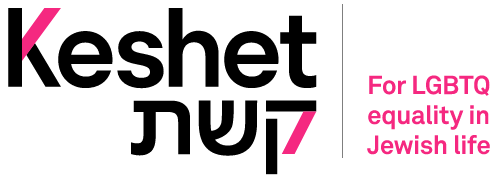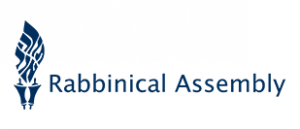Noach: Holy Disagreement
Sermon given October 25, 2025
Shabbat shalom, everybody.
This is the week we learn about Noach, the week we learn about the flood.
This is the week where we read about a world completely out of control.
וַתִּשָּׁחֵ֥ת הָאָ֖רֶץ לִפְנֵ֣י הָֽאֱלֹהִ֑ים וַתִּמָּלֵ֥א הָאָ֖רֶץ חָמָֽס:
The world had become corrupted before God, and filled with Chamas, with violence and lawlessness.
This week, we read about God becoming so angry with our ancestors that the only acceptable answer seemed to be to annihilate our species. קֵ֤ץ כָּל־בָּשָׂר֙, God tells Noach. It’s time to put an end to all flesh.
This is also the week where we read about the floating oasis that was Noah’s ark: a very large and very special boat, with specific compartments and a waterproof insulation and skylight in the ceiling. This special boat was created to hold Noah, his sons and their families, and two of every species of creepy-crawly-fluffy-scaly-flying-burrowing creature inhabiting this planet.
And on this week of all weeks, on this animal-filled week of Scripture, on this week where I am just now returning from four days in the forests in the northwestern portion of this incredible state, I want nothing less than to give a sermon about all of the amazing specimens of the animal kingdom that I saw.
I want to stand here before you and expound about the first time this week that I saw a wild turkey, then a second wild turkey, then a flock of them, and then how I got kinda bored of wild turkeys. I’d like to speak rabbinically about the beauty of the birds of prey I saw swooping over the landscape, bringers of death and of wonder, and about the tenacious and tiny mice and voles I saw, and about the endlessly bounding and grass-chewing grey-brown deer with, apparently, absolutely no fear of humans.
And more than ANYthing, I want to spend this sermon describing in the strongest spiritual terms possible the moment I came around a corner on a small gravel road and came face-to-face with a bull moose, with a full rack of antlers, standing in the middle of the road and staring at me. For the record, I can only imagine how HE felt, when this odd shiny blue creature in the shape of a Hyundai hybrid sedan appeared out of nowhere.
I want to tell you all about the incredible awe I felt, and how it was a holy and terrifying moment of beauty, and how that moment transformed the rest of my trip into a meditation of sorts, a meditation on the nature and spirituality of fear and awe.
I spent a lot of this week thinking about awe, and what we mean when we say we feel awe, especially in relation to God. Often, what we mean when we say “awe” in reference to God has to do with the most impressive and moving things in this world, the things that make us say “wow”: things like double rainbows and childbirth and true love and meteor showers. But the word “awe” also has another aspect, a part we often forget is included in our tradition: awe can also mean healthy, humble FEAR. Awe can be a reminder that at the end of the day, we are not in charge. When talking about God using the Hebrew word for awe, we say that God is “El Nora”. But when we use this phrase, both in our Amidah and at the end of the High Holidays as the metaphorical gates swing shut, if we just mean that God is AWEsome, we are omitting an entire layer of the word’s message. Because calling God El Nora means that God is both truly Awesome and truly AWEful.
And alone in the woods several miles from the nearest paved road or, as far as I knew, another human, coming face-to-face with that moose was one of the closest memories I’ve ever had to understanding true Awe. I will always be grateful to God– and grateful to that moose, who must have been just as surprised as I was– for that moment.
Now. That’s the sermon I wanted to give you, a sermon about the miracle of God’s creation and our place as humans in it among all of the other creatures, a sermon about awe and wonder and humility.
But the fact of the matter is that there are many, many possible takeaways from this week and from the Scripture we just read. And while I just so happened to have a powerful personal experience in nature a few days ago, that experience did not stop the rest of the stories and machinations and conflicts of the world from continuing to unfold, and it did not stop us rabbis from feeling immense pressure to respond.
I came back from the forest and returned to my emails, to my facebook feed, to the various rabbinic listservs I am a part of. And I learned, when I began catching up on all of the messages from the past few days, that many of my rabbinic colleagues have spent this week caught up in a discussion and debate very, very different from what had been going through my own head and heart. And so that, my friends, is what the rest of this sermon is about today.
Some of you may or may not have heard that a week ago, my colleague Rabbi Elliot Cosgrove at Park Avenue Synagogue in New York City made a notable choice. During an election season, he gave a sermon in which he called out a democratic New York mayoral candidate by name and said that that candidate, quote, “poses a danger to the security of the New York Jewish community”. Rabbi Cosgrove proceeded also stated that he believes voting for the republican candidate, instead of the other Democratic candidate, would be tantamount to supporting the candidate he was urging his congregants to oppose.
This sermon, given to a large congregation by a prominent rabbi, has set off a bit of a firestorm online. There is now a letter going around signed by over 1,000 rabbis calling on Jews and non-Jews alike to reject candidates who promote antiZionist rhetoric and calling out the same candidate by name. Though the letter does not go as far as Rabbi Cosgrove did in suggesting for whom congregants should vote, it was inspired by, and quotes, the sermon.
Now. Both on my Conservative rabbinic groups and my cross-denominational groups, opinions on Rabbi Cosgrove’s sermon and on the letter it inspired run deep.
Some, including several of my own teachers and mentors, are proudly standing behind their signatures on the letter and their support of Rabbi Cosgrove making recommendations openly about whom his congregants should vote for. They are proud of their signatures, ostensibly, because they believe that this particular politician does, indeed, pose a real threat to the many Jews who live in New York and beyond, and because they feel that the level of antisemitic and antiZionist discourse has reached dangerous levels in this country.
In terms of this week’s Torah portion, it appears that these rabbis are concerned that the arc of history is once again bending not towards justice, as we would hope, but rather towards Chamas, towards violence and lawlessness, and they feel a responsibility to speak up and change the tide. They see this election as a bellwether of sorts, an embodiment of deeply concerning trends on the rise,
At the same time, other colleagues, including several more of my teachers and mentors, are adamant that a rabbi should never openly endorse candidates or attempt to influence their congregants’ voting decisions, and are horrified by Rabbi Cosgrove’s sermon and the letter based off of it.
In terms of this week’s Torah portion, this second group of rabbis see this particular candidate not as a symbol of violence and lawlessness, but rather as an imperfect, flawed politician who is running in a fraught municipal election. They agree that violence and lawlessness are a problem, but do not feel that the appropriate way to address them is by signing on to this letter or attempting to influence congregants’ votes from the pulpit.
Another colleague, who did sign the letter but requested anonymity for the purpose of this sermon, described signing it as akin to breaking a Shabbat rule in order to honor pikuach nefesh, the Jewish value of saving a life over observing all other mitzvot. That is to say, they wish they did not feel a need to sign this letter, and it is in a way breaking a personal rule for them to do so, but they still felt that it was necessary to add their signature because it was so important to do so.
Still other rabbis have offered strong support of this particular candidate, and find him in no way dangerous.
Writing for the Jewish Telegraphic Agency a few days after the letter quoting Rabbi Cosgrove began to make its rounds, Rabbi Shira Koch Epstein reflected on the immense impact of the sermon and the letter and the incredible pressure such moments put on rabbis as spiritual leaders. Rabbi Epstein writes, quote, “when a letter like this appears, rabbis can face a no-win choice: risk alienating some of the people they serve, or risk being seen as abandoning our people altogether.”
She is right. That is a risk that every rabbi faces. That is a risk that I face, too. I will share with you in plain and simple terms that I, personally, will not be signing the letter. However, I also want to state clearly that I respect my colleagues who did sign the letter, because they followed the still, small voice within their hearts, as our tradition calls on us to do. They saw where they believed they had to draw a line in the sand, and they did so. That takes moral courage. It also takes moral courage to not sign a letter that so many colleagues have put their names on.
This is all to say that while I disagree with Rabbi Cosgrove’s choice to use his pulpit to recommend that his congregants vote a certain way, and while I promise this community that I will never endorse a candidate or suggest how you should vote, I do believe that he acted from a place of deep wrestling, devotion, and love for humanity and the Jewish people. He just showed it in a different way than I choose to.
Because in the end, even if we show our devotion in different ways, the path that allows Judaism to survive– and thrive– is the path where we commit to supporting each other in our journeys and in our myriad ways of communicating and taking stands, even when, and especially when, those ways differ. This is how strong community forms, and how strong community stays connected. Rabbi Epstein, later in her article, alludes to the power of uniting relationally through diverse opinions, stating that “The letter that so many rabbis signed is, at heart, a call to defend the Jewish future. But the Jewish future will not be defended by uniformity. It will be defended by the strength of our relationships.”
And in this, I think she hits the nail on the head. Because relationships are what this is all about, at the end of the day; Relationships with each other, with congregants, with interfaith partners, with family and friends; relationships with political foes and allies alike; relationships with our ancestors and descendants, with God, with Israel, and with our own self-conscience.
The relationships my colleagues are nurturing in our heart-to-hearts this week matter. The relationships the TBE Board nurtures when it agrees and when it disagrees within itself matter. The relationships each member of TBE nurtures when you reach out to share your opinions, to ask questions, to offer help, to sympathize, to share a concern– these matter.
Relationships, by nature dynamic and evolving things, are at the heart of all we do as people and as Jews, and moments like this, and the choices we all make, impact our relationships, for better, for worse, and often, for both.
And in today’s Torah portion, relationships are what fall apart. All humans have turned into such bastions of lawlessness and violence that it sounds as if trust and empathy and love are no longer left on the Earth. There could no longer be healthy interpersonal relationships of any kind. And most painfully, it is GOD who decides that all Divine-human relationships will be nullified, and wiped out, via the flood. It is GOD who says, no, we have reached a point of no return, I cannot do this anymore, I will not do this anymore, there is no way back from this precipice.
Ouch.
But then: it is ALSO God who realizes, after the flood, that giving up on those relationships was something that must never happen, ever, ever again.
It is God who promises, to never, ever again approach conflict, and anger, in this destructive way. It is God who, in this Torah portion, says HINENI, here I am, making a brit, a covenant with all humans and animals on this Earth, that I will not give up on you, and that I hope you will not give up on me, or on each other, again. As we move forward together, I am prepared to judge you erring on the side of love.
And committing to judge one another erring on the side of love is exactly what all of us have to do, again, and again, and again.
There is a principle in Pirkei Avot that is similar to the conclusion that God comes to in this week’s parasha. Pirkei Avot teaches that when you judge a person, you should do so l’kaf zchut, according to their merit. That is to say that if, say, there was a set of scales of our good and bad deeds, and they were equal, we should err on the side of the good deeds. Or if a person has ulterior and healthy motives for doing something, we should focus on the good motives. Essentially, the principle of judging l’kaf zchut acknowledges the imperfection inherent within each of us, and requires us to give each other the benefit of the doubt.
As the rabbinic controversy has unfolded this week after Rabbi Cosgrove’s sermon and the letter’s circulation, I have been reminded that among rabbis, like among all other people, our choices about where and when to draw a line in the sand, where and when to take a stand, will differ. I have also been reminded that in those moments when our stands differ, it is our sacred duty to judge each other l’kaf z’chut, to remember that we became rabbis because we love Judaism and our sacred tradition, not because we wanted to agree on everything.
This sacred duty to judge l’kaf z’chut in times of disagreement also applies to us here at TBE as we navigate our personal, religious, and–yes– even political differences.
In principle, it would be lovely to never have politics touch our relationships here at TBE– but the reality is that the values that guide our souls and the values that guide our votes do indeed overlap. Even making the choice not to ever talk politics is a political choice, and when the content of our sacred texts mirrors the content of the ballot, we religiously observant folks have a difficult line to walk, and it is a lime we walk in diverse ways.
However, just like the word “Awe”, the word “diverse” also has multiple meanings. On the one hand, honoring diversity means supporting the marginalized and making sure all of our community members are actively included, and finding appropriate accommodations where necessary. Yet at the same time, honoring diversity also means honoring the dignity of those who disagree with you, and defending their right to disagree with you.
Honoring diversity means arguing, not with the goal of proving that you are right, and that the other person is wrong, but with the goal of understanding one another. Honoring diversity means not writing someone off because of one belief, but judging them l’kaf z’chut, trying to see the big picture, and remembering their merit, and their worth.
I have been humbled, this week, to see judgement l’kaf z’chut being modeled among many of my colleagues. I have similarly been humbled again and again by members of this community, who have gone the extra mile and had difficult and heartfelt conversations, not because it was easy or clear-cut, but because it was holy, and because it was how to ensure that our community stays strong.
Perhaps, if our ancestors had been able to do this, things would never have gotten so bad. Perhaps, if our ancestors had learned to judge one another l’kaf z’chut, the world would not have devolved into utter lawlessness and violence.
Perhaps the ark would never have had to be built.
Perhaps, God wouldn’t have given up on us.
Perhaps, WE wouldn’t have given up on us.
I’m not sure.
But what I am sure of is that none of us here today, or watching online, or reading these words, have given up. We are making the choice to actively be in community together, hearing one another, being vulnerable with one another, and trying again and again to judge each other l’kaf z’chut, according to our merit.
I don’t know what the next flood will be. But I am heartened to know that we will be facing it together as a community, strengthened not only in spite of our diverse opinions, but because of them. Shabbat shalom.



